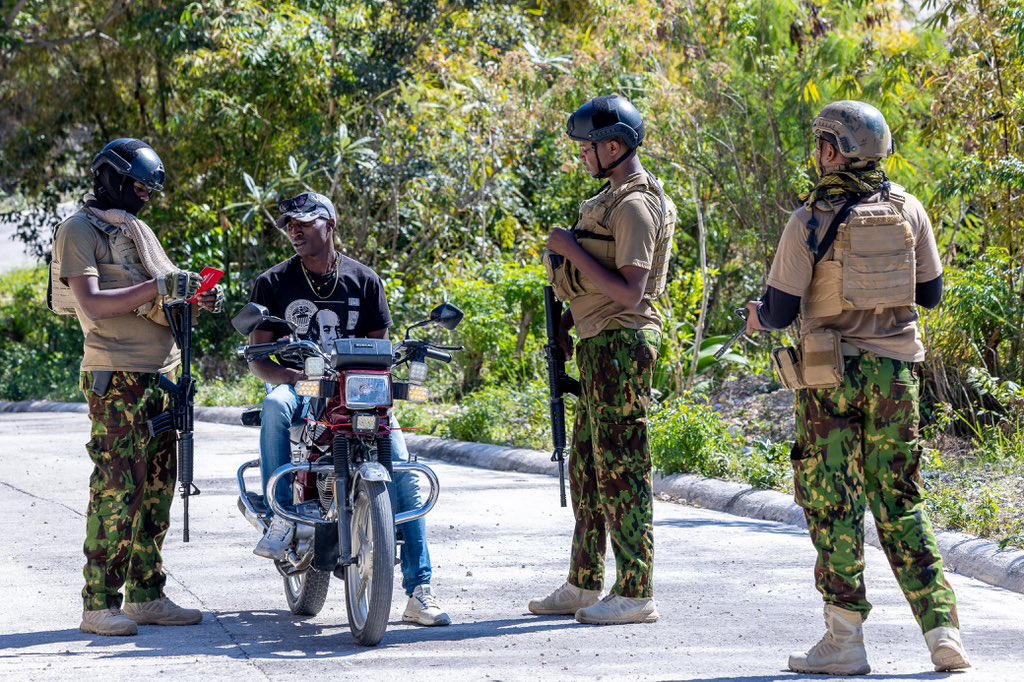
Kenya’s command of Haiti Security Mission uncertain amid US push for UN Force » Capital News
NAIROBI, Kenya, Aug 24 – Kenya’s leadership of the Multinational Security Support (MSS) mission in Haiti is facing uncertainty as the United States pushes for a new United Nations-backed framework that could shift strategic command away from Nairobi.
Speaking before the Organization of American States (OAS), US Deputy Chief of Mission Kimberly Penland praised Kenya for stepping in at a critical moment to prevent the collapse of the Haitian state, but stressed the need for broader international leadership and stronger institutional support.
“With respect to the MSS mission, the United States thanks Kenya for its dedication, leadership, and support over the last year,” Penland said.
“Kenya answered Haiti’s call at a critical moment, demonstrating enormous compassion and courage, putting its people in harm’s way thousands of miles from home, and preventing a complete collapse of the Haitian state.”
She also commended the Bahamas, El Salvador, Belize, Guatemala, and Jamaica for contributing personnel, and Canada for its steady support through the UN trust fund and planning efforts.
Penland revealed that Washington, alongside Panama, will seek authorization for a UN support office to “properly resource this effort” and ensure stronger regional participation in providing strategic leadership for the force.
“As we look to combat the threat of terrorist gangs seeking to topple the state, we must ensure that an even greater share of the international community is invested in the fight,” she added.
The move coincides with efforts by the OAS and CARICOM to finalize a new Haiti Roadmap, which places security at the center of restoring peace, enabling elections, and facilitating humanitarian assistance.
Presenting the roadmap, OAS Secretary General Albert Ramdin described it as a shared strategy built on five pillars: security stabilization and peace restoration, political consensus and governance support, electoral legitimacy, humanitarian relief, and sustainable development.
UN Peacekeeping Mission
The roadmap will be jointly coordinated by the OAS, CARICOM, and the UN, with implementation expected to begin immediately.
Kenya currently leads the MSS with 800 officers deployed since June 2024, and another contingent expected within two months. However, the mission has struggled with funding shortfalls and limited political backing.
In November 2024, a US-backed proposal to transition the MSS into a full UN peacekeeping mission was vetoed by Russia and China, leaving Kenya to shoulder command with modest international support. Moscow and Beijing argued that conditions in Haiti were not suitable for peacekeepers, citing risks of direct combat with armed gangs.
President William Ruto has since lobbied for stronger UN involvement. On Tuesday, he held a phone call with US Secretary of State and National Security Advisor Marco Rubio, where both sides agreed on the need for a UN Security Council resolution to establish a support office for the MSS.
“We concurred on the imperative of a resolution at the UN Security Council to establish a UN support office for the Multinational Security Support mission in Haiti, to aid efforts to stabilize and secure the country,” Ruto said in a statement.
The crisis in Haiti remains dire. More than 3,600 people—including over 100 children—have been killed in gang violence this year, while more than half a million have been displaced, according to the UN.
US lawmakers, including Secretary of State Marco Rubio during a Senate Foreign Relations Committee hearing in May, have openly questioned whether Kenya can sustain its leadership role alone.
“We are seeking an alternative strategy because the one in place right now isn’t working, and Haiti is heading in a very bad direction very quickly,” Rubio said.